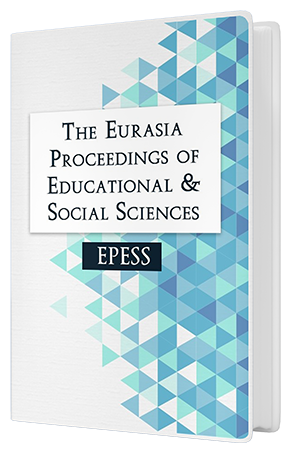DETERMINING AND COMPARING THE SCIENCE PROCESS SKILL LEVELS OF 5th AND 8th GRADE STUDENTS
Keywords:
science process skills, teaching scienceAbstract
The aims of this study are to determine and compare the levels of scientific process skills of 5th and 8th grade students. The skills which were examined specifically for this research are as following: Observation, classification, measurement, recording data, establishing space and number relationships, predicting, identifying variables, interpreting data, inference, hypothesizing, modelling, and experimenting. Research was conducted with a total of 200 students, 100 students at 5th grade and 100 students at 8th grade, attending to a middle school in the province of Kars. In this research the survey method was utilized. Science Process Skills Test (SPST) consisting of multiple choice questions administered to students of each grades to determine their level of science process skills. Data was examined by utilizing frequency and percentage distributions. The findings show that the percentage of success achieved by the 8th grade students is higher than the 5th grade students. In addition, both 5th graders and 8th graders’ performance level for experimenting and establishing space and number relationships are lower compared to other process skills. Findings also showed that 5th grade students are better in recording data, and 8th graders are better in creating a model in compare to other science process skills.Downloads
Published
Issue
Section
License
Copyright (c) 2016 The Eurasia Proceedings of Educational and Social Sciences

This work is licensed under a Creative Commons Attribution-NonCommercial-ShareAlike 4.0 International License.
The articles may be used for research, teaching, and private study purposes. Any substantial or systematic reproduction, redistribution, reselling, loan, sub-licensing, systematic supply, or distribution in any form to anyone is expressly forbidden. Authors alone are responsible for the contents of their articles. The journal owns the copyright of the articles. The publisher shall not be liable for any loss, actions, claims, proceedings, demand, or costs or damages whatsoever or howsoever caused arising directly or indirectly in connection with or arising out of the use of the research material. All authors are requested to disclose any actual or potential conflict of interest including any financial, personal or other relationships with other people or organizations regarding the submitted work.




